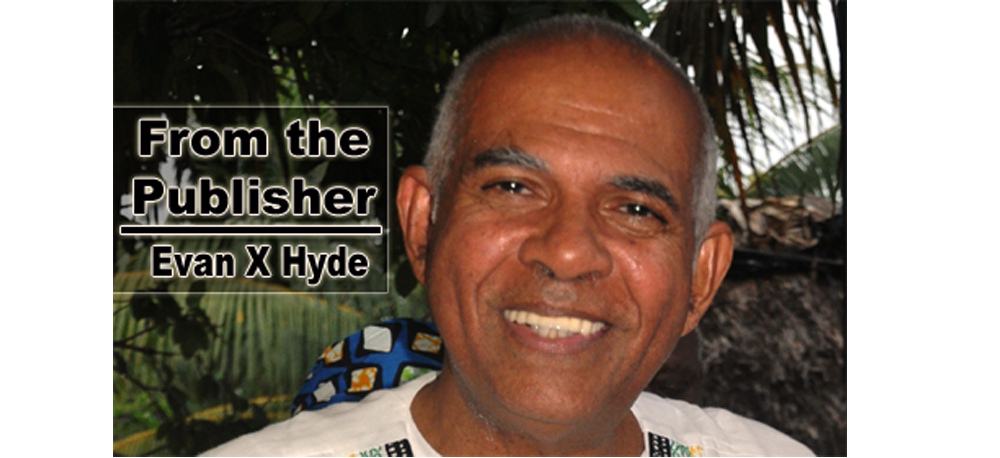I began college at Dartmouth in September of 1965. I was 18 years old. Dartmouth is located in Hanover, New Hampshire, a small town of about six or seven thousand people in the cold, mountainous northeast of the United States. Dartmouth is known as a skiing school.
There was one black family in Hanover: the father worked at the local post office.
The late Stokely Carmichael (later Kwame Toure), at the time a charismatic, eloquent activist for an organization called the Student Non-Violent Coordinating Committee (SNCC), began talking about black power in the spring of 1966 in Mississippi, which is probably the most racist and dangerous state in America.
(Incidentally, the Rt. Hon. George Price studied at a segregated, black Roman Catholic seminary in Mississippi in the late 1930s. He later spent about a year at another Catholic seminary in Guatemala City.)
The “black power” slogan electrified black youth in America. Dartmouth, an Ivy League university with about 3,000 students in enrollment, and all-male at the time, enlarged its freshman class percentage of African Americans in the class admitted in 1967.
One student of the 1970 class was a young brother named Don Dayson, who became a physician working in Harlem, where he met Belizeans living in New York, gained contact with me, and we corresponded for a while.
Another brother in that class was Dandre DeSandies, who lived in the dormitory (Cohen) next to mine (Bissell), and with whom I became good friends. A couple decades ago, Dandre, who had become a professor at a university in California, visited Belize while in charge of some students. We met, and talked some.
I believe Wally Ford was also a member of that 1970 class. I made contact with him recently through a Belizean, Astor Foreman, who lives next to Wally in New York. Wally is a professor at Medgar Evers College, and in 1969 he was the person of major assistance in the establishment of this newspaper, soliciting a donation from a Dartmouth professor of Chinese named Mirsky. Wally holds a special place in our newspaper’s 53-year history.
Renewing contact with Wally, I began touching bases with other Dartmouth classmates like Bob Bennett and Dennis Young (not the Belizean one). These brothers had heard various things about me over the decades.
Meanwhile, Dartmouth had become co-ed around 1977 or 1978, and one of my granddaughters, Kameesha, graduated from Dartmouth and later did graduate work at Harvard. She is Cordel’s oldest child.
Chatting with Don Dayson recently by e-mail, he said he had heard back then that I had run for prime minister. I tried to explain how I had wanted to be a writer, and got dragged into Belize’s party politics. But, this is a long story, complex, and perhaps even subtle.
Politicians and writers are two different creatures. A politician tells people what they want to hear; writers tell people what they need to know.
Because of all the drama involved with my early adult life, I think I was able to advise Cordel sometimes about some things an aspiring politician should avoid, and so on and so forth.
Since Cordel became Belize’s Deputy Prime Minister two years ago, we have met maybe two or three times, held maybe three or four conversations. He is, of course, very busy. I do not interfere in his politics.
Nevertheless, the nature of the media businesses in which I am involved is such that a lot of politics is discussed, and some of that discussion is critical of the Cabinet in which Cordel works, and sometimes even critical of Cordel himself, if I am to judge by comments recently made to me by one of my younger siblings. I am therefore placed in a quandary from time to time. But, all I can do is try to adjust to these new millennial realities.
I was teaching at the Belize Technical College in late 1968 when all the discourse and action began, featuring Assad Shoman and Said Musa, which led to a street demonstration against an American propaganda film about the Vietnam War at the beginning of 1969. This discourse and action, in a way, sparked black conscious activism in Belize which led to the establishment of the United Black Association for Development (UBAD) in February of 1969.
Needless to say, a lot of things have changed in Belize since then. But, thinking back about it, maybe some of the ruling party thought I wanted to be prime minister when they charged me with seditious conspiracy in 1970. I would say my trial in the Supreme Court in July of 1970 was responsible for major changes in my life.
In conclusion, I would say that all I did was do what I had to do when I had to do it. There were good times, and there were times which were not so good, but it was always exciting. I couldn’t ask for anything more.
Blessings upon you.

